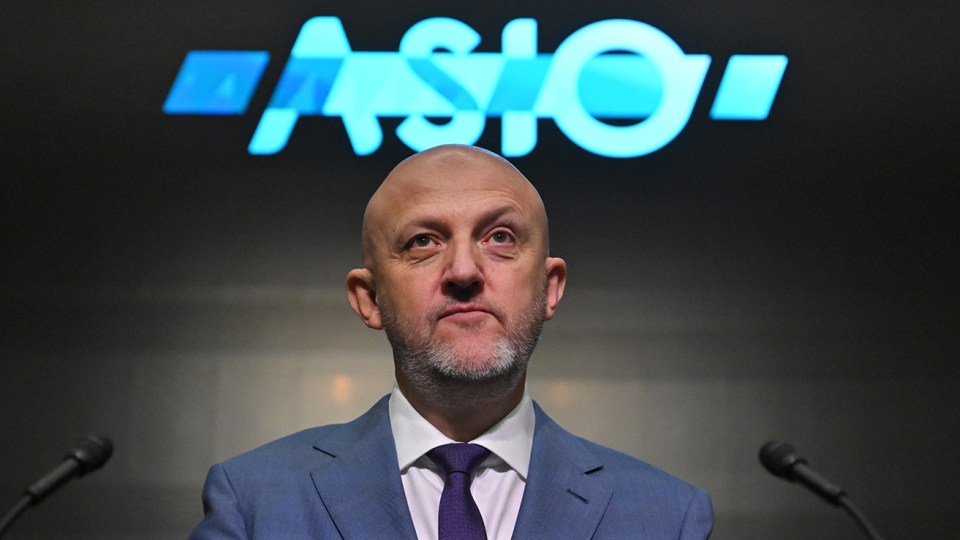


Australia has vowed to protect its people and democracy from harm, after the nation’s spy chief laid bare security threats and cases of intimidation.
At least three nations had conspired to harm people in Australia and at least four plotted coerced repatriations, where people in Australia are heavily pressured to return to their birth country, director-general Mike Burgess revealed in his annual threat assessment speech.
Sabotage and espionage also remained major risks, Burgess said on Wednesday. He said one hostile nation was found to have constantly probed critical infrastructure to explore and exploit possible vulnerabilities or install malware to gain access in the future.
On Thursday, Attorney-General Mark Dreyfus said the cases showed the Australian Security Intelligence Organisation and other agencies were working successfully to protect the country.
“We will not tolerate the surveillance, harassment or intimidation of anyone, anywhere in Australia,” he told ABC radio on Thursday.
“We will protect our democracy – our agencies will protect from anyone who seeks to do them harm.”
Burgess also noted ASIO had intervened to stop foreign agents from luring a person overseas, where they could be injured or killed.
The plan to arrange an “accident” was foiled when the intelligence agency stepped in.
Asked if Australia had confronted the culpable nations, Dreyfus said “those countries know who they are”.
Opposition home affairs spokesman James Paterson said Burgess’ assessment was “particularly bleak and sobering”.
“There’s a pretty clear short list of the states that would have an interest and would have the ability to intervene in our democracy, and it is the authoritarian states and those who have interest in our region,” he told Sky News.
“I can tell you that the people who are targeted by this, and the diaspora communities who are under the thumb of these regimes, know exactly what he’s talking about.”
Nations could try to influence diaspora groups to sway their votes or direct political preferences within Australia, Paterson said.
Despite the existing range and frequency of incidents, Burgess said the second half of this decade could have more surprises.
“Consider yourself warned,” he told a room full of intelligence officials, law enforcement officers and diplomats, including the Chinese ambassador.
Burgess also warned of a rising tide of children being targeted by extremist content online. Minors were particularly vulnerable to radicalisation with AI-fuelled online algorithms making it easier to find extremist material and the digital world influencing some children more than the real world.
Calling for large tech companies to work with authorities, Burgess said they needed to “step up to the plate” and act responsibly by stopping harmful algorithms.
“I hope they want that for their child,” he said.
ASIO disrupted five terror plots in 2024 and, of all the potential terrorist matters investigated last year, almost all involved minors.
Young people could be radicalised online quickly and a generation of digital natives was entering a vulnerable age, Burgess said.
“Radicalised minors can pose the same credible terrorist threat as adults,” he said.
This was being exacerbated by the impacts of social media, mental health and the spread of misinformation and conspiracy theories.
Nationalist and racist violence extremists were expected to expand their movements and “undertake provocative, offensive and increasingly high-profile acts to generate publicity and recruit”, Burgess said.
“I remain concerned about young Australians being caught up in webs of hate,” he said.
-AAP










